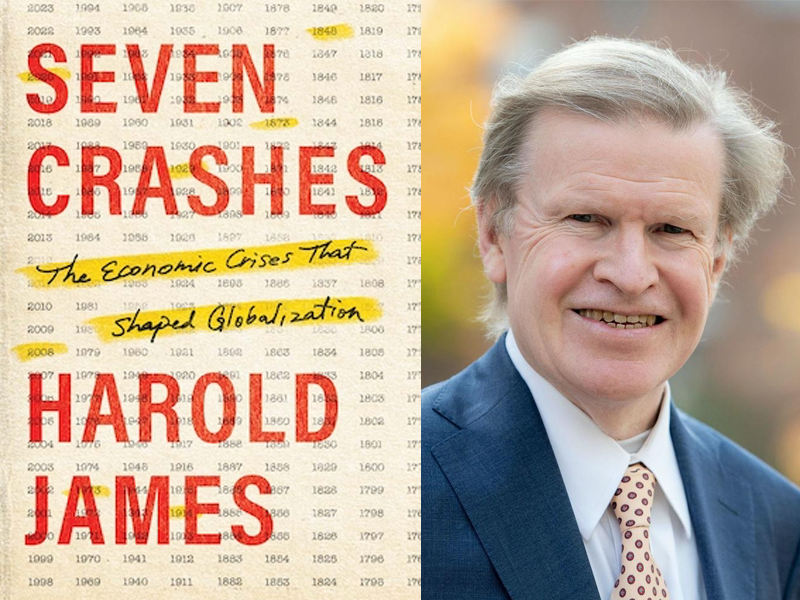
Open to the Public and the Princeton University Community
Registration required for in-person attendance for Princeton University ID holders and invited guests; Livestream open to the public on MediaCentral
A leading economic historian presents a new history of financial crises, showing how some led to greater globalization while others kept nations apart.
Harold James, the Claude and Lore Kelly Professor in European Studies at Princeton University, is Professor of History and International Affairs at the Princeton School of Public and International Affairs, and an associate at the Bendheim Center for Finance. His books include a study of the interwar depression in Germany, The German Slump (1986); an analysis of the changing character of national identity in Germany, A German Identity 1770-1990 (1989); International Monetary Cooperation Since Bretton Woods (1996), and The End of Globalization (2001), which is available in 8 languages. He was also coauthor of a history of Deutsche Bank (1995), which won the Financial Times Global Business Book Award in 1996, and he wrote The Deutsche Bank and the Nazi Economic War Against the Jews (2001). His most recent books include Family Capitalism, Harvard University Press, 2006; The Creation and Destruction of Value: The Globalization Cycle, Harvard University Press, 2009; Making the European Monetary Union, Harvard University Press, 2012; The Euro and the Battle of Economic Ideas (with Markus K. Brunnermeier and Jean-Pierre Landau), Princeton University Press, 2016; Making A Modern Central Bank: The Bank of England 1979-2003, Cambridge University Press 2020; The War of Words: A Glossary of Globalization, Yale University Press 2021. He is the official historian of the International Monetary Fund. In 2004 he was awarded the Helmut Schmidt Prize for Economic History, and in 2005 the Ludwig Erhard Prize for writing about economics. He writes a monthly column for Project Syndicate.
Co-sponsored by The Griswold Center for Economic Policy Studies (GCEPS), Julis-Rabinowitz Center for Public Policy & Finance (JRCPPF), and Economic History Workshop (EHW).

